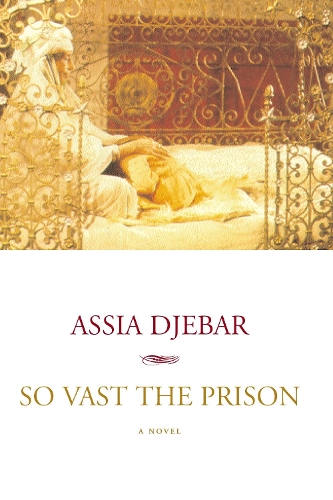
So Vast The Prison
(Paperback)
Available Formats
Publishing Details
So Vast The Prison
By (Author) Assia Djebar
Seven Stories Press,U.S.
Seven Stories Press,U.S.
1st August 2011
United States
Classifications
General
Fiction
843.914
Physical Properties
Paperback
363
Width 152mm, Height 228mm
531g
Description
Paperback edition of the most ambitious work to date by the writer that many now consider to be North Africa's most important literary voice. It tells the story of a modern, educated algerian woman, raised in the years of colonial oppression and the Algerian War. Tragedy and history are its subjects and particularly the condition of women in Islam. 'In this fiercely intelligent, intricate novel set in a tragic, bewitching Algeria, the tales Djebar unearths are richly detailed and gracefully told, a moving history of exile' - Publishers Weekly
Reviews
Assia Djebar . . .has given weeping its words and longing its lyrics. William Gass
Marx . . . wanted to be a 'citizen of the world.' Listening to Assia Djebar's torn yet majestically flowing voice gives us some sense of what is involved in that admirable aspiration. Christopher Prendergast,Times Literary Suplement
Writing becomes weapon and refuge for the oppressed in this fiercely intelligent, intricate novel set in a tragic, bewitching Algeria. Expressing the bitterness of being caught between traditional Islamic and modern European cultures, married 36-year-old Isma begins her story the summer she has an affair with a student. A highly educated musicologist, Isma is also governed by Islamic tradition. When her husband discovers her dalliance, he beats her, intending to blind her. The affair marks Isma's awakening and the beginning of her quest for true independence, though she stays with her husband for a little while longer. When she finally leaves him, she embarks on a semi-documentary film project, to be called Arable Woman. Intertwining her experiences in the mountains filming peasant women with memories of her childhood and stories about her female ancestors and relatives, Isma weaves a complicated tapestry of images and sentiments. The tales she unearths are richly detailed and gracefully told, and the book becomes a moving common history of cultural exile and captivity. Djebar, winner of the 1996 Neustadt Prize for Contributions to World Literature, has a talent for narrating the stories of those who are 'freed and voiceless' without heavy-handed moralizing or judgment. Publishers Weekly
From time to time, we hear about books that supposedly tear away the veil from the lives of Arab women. I don't know anyone who has done this with more intelligence and passion . . . than Assia Djebar. That murmur beneath her images soon begins to sound like a roar. Alan Cheuse, All Things Considered
[A] polymorphously lyrical novel by . . . Algeria's foremost literary voice. Jonathan Levi,Los Angeles Times Book Review
Author Bio
A beloved author, translator, and filmmaker,Assia Djebar(19362015) was born Fatima-Zohra Imalayen in the Algerian town of Cherchell. Her novels and poems boldly faced the challenges and struggles she knew as a feminist living under patriarchy, and as an intellectual living under colonialism and its aftermath. Djebars writing, marked by a regal unwillingness to compromise in the face of ethical, linguistic, and narrative complexities, attracted devoted followers around the world, and received numerous awards and recognitions, including the Venice International Critics Prize, the Neustadt International Prize for Literature, the Yourcenar Prize, the Frankfurt Peace Prize, and a knighthood in Frances Legion of Honor. She was the first Algerian woman to be admitted to Frances prestigiouscole Normale Suprieure, and the first writer from the Maghreb to be admitted to theAcadmie Franaise.
